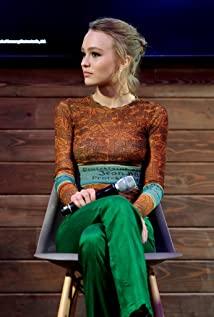Quite a lot of political metaphors, quite interesting ending.
This article is just an interpretation perspective, personal opinion, does not represent the original intention of the screenwriter and director, let alone any intention to force others to understand this way, pure entertainment.
Aristotle wrote in the book "Politics" that has influenced mankind for thousands of years, "Man is a born political animal."
In the initial state, Richard (the old captain) was the natural leader, and at the same time he was the parent of everyone on the ship, a metaphor for a patriarchal society.
No one on the boat questioned any of Richard's orders and completely obeyed his rule. He is not only a parent but also a "monarch."
Until the children grow up, the smartest few of them have acquired knowledge beyond their limits and find that their parents are hiding themselves and their interests are not exactly the same.
From my own perspective, the various behaviors of the patriarchal monarch can easily lead to misunderstandings, such as contact with the opposite sex.
When some rebellious actions are made, it will be more severely restricted from the power of the "monarch."
This resistance is long-lasting and will not stop until the revolution succeeds when the "monarch" is weak, and "eliminates" the rule of the "monarch".
Since then, the society on board has entered a short-term anarchy after the success of the revolution.
The revolutionaries who overthrew the "monarch" by violence were the first to stand up and demand power, but at this time conservatives still prevail, and society will follow the old rules for a period of time.
According to the remaining rules, they elect a leader.
It is a pity that the social harm caused by the revolution is not so easy to solve. The problem that new leaders are most likely to encounter is insufficient authority, especially when they cannot solve social problems. Its legality will rapidly decline.
Everyone disobeyed him, and no one even notified him that the food machine was damaged.
At the same time, careerists who have long been waiting for opportunities incited and deceived the public, made unrealistic wishes, and took the initiative to create troubles. As a result, power was dispersed and society was divided.
All kinds of conflicts have intensified, and society has entered a period of chaos.
Among them, the methods of the villain male protagonist are really "meaningful for reference."
The first is two levels of enemies. The first is the imaginary enemy of aliens outside the spacecraft (society), and the second is the hostile group after the division of the society. Through the establishment of enemies at two levels, the "internal group loyalty" is effectively created, and a combative collective with oneself as the center of power is condensed.
The second is the uncertain enemy within. When the conspiracy to kill the old captain was revealed and the aliens proved to be non-existent, the villain male protagonist encountered the biggest crisis. For ordinary people, it was impossible to overcome and the political life was over.
Many people see this and think that he has no choice but to run away or violently.
Look at the villain male protagonist. He admitted that he killed the captain, but his motive was noble. He did it for the benefit of everyone, did it to protect everyone, and was paternalistic. Because aliens are parasitic on the captain's body. In order to protect you, he had to be killed, and his behavior was just.
The villain protagonist uses words to agitate, recall the pain before, initially unite and unite, and at the same time transform the materialized aliens into non-materialized aliens. Tell everyone that this alien might sneak into anyone's body, parasitize, and harm everyone. Through this form, the so-called parasitized person becomes an alien, an enemy, and thus confronts other people.
But words alone are not enough. The masses may be deceived for a while, but with such a clumsy lie, everyone will soon return to rationality.
So immediately afterwards, the villain male protagonist pushed and shoved one by one, testing the reaction of the masses, to see who hurt the masses to accept? Sure enough, immediately identify an unwelcome person from the group, who had contradicted other people before. Such an object can easily be identified as an alien and would be happy to "knock it down."
Such victims can only escape, and the more they escape, the more the masses think they are right. Why are you running without a guilty conscience?
The next step is to comprehensively vent the carnival of usual dissatisfaction.
By committing crimes together and killing aliens, everyone becomes accomplices (the three major ironies in life?), and the lie becomes the truth, otherwise it will deny oneself. Everyone will become a criminal. (It's almost the same as when the French Revolution was about to kill Louis XVI. Gentlemen, we are already criminals. Why are we hesitating?)
The villain male protagonist, through violence and intimidation, has mastered the right to interpret who is the alien in the society. And everyone is afraid of becoming the next target, and everyone is in danger. Suddenly, the loyalty to the ideal goal (more food, more freedom and happiness) will be transformed into loyalty to the power and violence of the villain hero.
From noble goals to fearful obedience.
From allegiance to the National Socialist Party to allegiance to Hitler.
In addition, the word alien in the movie also has the meaning of foreigners, foreigners, immigrants, and aliens. It can be said that the implication is very obvious.
The villain male protagonist's series of methods for obtaining power are truly superb and extremely talented under the premise that there is no history to learn from.
Even today, it is still useful.
And these series of plots are also extremely political. Smell!
At this time, the villain male protagonist has united the majority of people, and the hostile rational group has become a minority, and because they are a "rational group", it is easier to consider the future and rationally judge the situation in the face of power. Part of it naturally made the decision to surrender.
Among them are those who pretend to surrender (the heroine Sela) and conspiracy to assassinate them, and those who surrender physically, trying to persuade everyone with reason and facts (the black female Phoebe).
The villain’s solution is very simple. If you can’t solve the problem, just solve the "problem", ask the problem, and tell the truth.
In the end, the victory of the decent male protagonist can be said to be very lucky. As long as the villain male protagonist is a little more rational and less impulsive, let his hands do it, and the victory will be achieved.
Such an impulsive villain is actually a bit of a violation of personality.
The plot of the film does not conform to the process of revolution in reality.
Of course, this kind of interpretation in the movie is normal.
In fact, this process expounded a very practical political issue. Whoever masters a stronger violent machine can win the final victory.
But it is inevitable that the audience will think, what if the decent male protagonist fails? What will society become and how will it develop next? Will this small society get the desired result? Will it turn into a tragedy?
Then let's take a look at the reality of the revolution.
Regarding the process of real revolution, historian Clan Blington elaborated in his book "Analysis of Revolution".
Cran Blington summed up the British Revolution in the 1740s, the American Revolution in 1776, the French Revolution in 1789, and the Russian Revolution in 1917. He believed that all revolutions must go through five stages:
1. The decay of the old regime Intellectuals transformed their loyalty to the old regime into an idealized system
2. The initial stage of the revolution. When the cabal is formed, the grassroots must show up for the revolution. The political deadlock is too deep to resolve. The government dispatched the army, and things went counterproductive, and the people became even more angry. It was easy to gain power at first, because the old regime left itself useless.
3. moderates took power between man and the old regime are still linked, by virtue of the background, relationships, are trained to master control over. The reform of a moderate and middle-line began. But such reforms are far from enough for extremists, who accuse the moderates of compromising with the forces of the old regime. Moderates are not fierce enough to suppress radicals.
4. Extremists take over power. They are more cruel, more organized, and know exactly what they want. The revolution was pushed to the climax of madness, and all the old "things" were destroyed. People are required to be "good people" and to abide by the new and idealized social standards that extremists are trying to establish. "Bad people" are punished, even if they are a companion, they must be punished more severely if they deviate from the correct line. The "high fever state" of the society.
5. The "Thermal Moon" ends the reign of terror. Eventually, society can no longer stand the revolution. The people, even extremists, are eager to settle down, make the economy run again, and enjoy some personal safety and happiness. At the beginning of "Thermal Moon", the extremists were overthrown (Robespierre went to the guillotine). There is usually a dictator who takes over the power and restores the low-expectation order that most people have changed.
This book was published in 1938, and the revolutions that followed were not included, but even if it is opened today, observing the revolutions in some countries, there are still many similarities.
Therefore, it can be inferred from this that if the decent male protagonist does not win, the villain male protagonist will hold power for a period of time. However, with the implementation of extreme policies or the expansion of personal power and desires, the masses will become more and more tired of him until he is overthrown. He, a relatively moderate dictator came to power.
In the more distant future, when people in a small society receive new ideas through the knowledge of computers, new revolutions and new systems may erupt.
In the film, after the villain's protagonist died, his group immediately surrendered, which shows that the villain's protagonist's authority is based on lies, violence and intimidation.
When the turmoil ended, the people on the ship learned their lessons, and at the same time they abandoned the rules of the old system, did not suppress their nature, did not drink blue, and established a political system more suitable for the ship, which is Greek-style direct democracy, although there is a nominal leadership. People, but all issues are resolved by everyone voting together. No one has absolute decision-making power.
In a small society with a small number of people and without external threats, direct democracy is indeed the most suitable system and can best ensure the stability of the regime. (Of course, it is best to be constitutional, otherwise it will easily evolve into Torville’s "tyranny of the majority")
Therefore, in the film, this system stabilizes until the end of the voyage and the arrival of the new earth.
To a certain extent, the behavior of the villain male protagonist is the politics of government art, and the final system is the politics of compromise and consensus.
The interesting result is that the system did not adopt the representative democracy of American power separation, and did not ideological, but it did combine reality, and naturally formed a political system that met its social and psychological needs.
Simply put, this system convinces everyone. Of course, there are quite a few problems with city-state democracy, so I won't go into details here. (What, you don’t want to vote, grab it and vote!)
In any case, it is quite interesting to see this film from this perspective.
Regardless of the political point of view, as an ordinary story, the leader was killed, the young people rebelled, and the good people won. It is not that interesting.
Of course, there is also a human nature perspective, the collision of rational and irrational passions. There are many films from this perspective, and the interpretation is also different. It is related to the reader's original view of human nature.
From a political perspective, it is relatively rare. Unfortunately, the level is limited, and mistakes and omissions are inevitable.
(The text below the dividing line has nothing to do with the film. It is a reference about the monarch and patriarchy, unless you are interested, it is not necessary to read)
The political system at the beginning of the film is a metaphor for absolute monarchy (autocratic monarchy).
A similarity to the monarchy is drug control, suppressing desire and personality, only imparting necessary knowledge, and prohibiting the acquisition of unnecessary knowledge and information, which is equivalent to brainwashing.
Patriarchy is the original source of the monarch's power.
The logic here is religious. The original source of mankind is Adam and Eve. God has given him the power to rule his wife and children. Adam is the head of the family and rules the family. When humans reproduce enough, Adam is the parent of all people, and this kind of parent will naturally become the monarch of all people.
Adam lived more than 900 years old, and he had enough time to "birth and grow many, fill the ground, and govern the land" (Genesis Chapter 28)
The work that systematically expounds patriarchy and defends the monarchy is Sir Robert Firma's "Patriarchy: On the Natural Power of the King and the Unnatural Freedom of the People" in 1680.
"Adam's power to dominate the whole world according to his divine order, and the power that his ancestors later enjoyed according to the rights passed down to them, are as extensive as the absolute rule of any monarch since the creation of the world. "(This sentence makes a good demonstration of the difference between power and rights)
"If God only created Adam and separated a piece of flesh and blood from him to create a woman, if all human beings reproduced from the two of them as part of them, if God also gave Adam to not only treat this woman and both of them The reign of the children born to him, and it also allows him to conquer the entire world and all living things in the world, so that as long as Adam survives for a day, no one can claim or enjoy anything unless he is given, given or permitted by him. "("Comment on Mr. Hobbes' "Leviathan")
The meaning here is, "Humans are not born free."
In addition, women obey men not just because the first woman was made by her husband's flesh and blood.
"Genesis" Chapter 3, Section 16: "You must adore your husband, and your husband will rule you." verify.)
Although the source of the old captain's power is not from God, it comes from the mysterious earth that everyone on board has never seen with his own eyes. In consciousness, there is a similarity with God.
For devout believers, this statement is sufficient.
But for people who are not religious enough, some people in deism, pantheists, animists, agnostics, and atheists, the most powerful defense of the monarchy is not based on religion, but from paternalism (let · Bodan).
The principle established by the government is to be kind to people, just like a father treats his children.
In the monarchy, the monarch is the father of all people (the queen is also the role of the father), all people are the children of the monarch, and the country has no citizens but only people. The monarch loves his children, and the children should obey the father's discipline.
In other words, this is "protecting the promiser himself by restricting the party's ability to do acts that the law deems violates his own interests."
On the one hand, the father prevents the self-harm of the "child", on the other hand it enhances his interests.
At this time, when the monarch uses various means to restrain everyone's behavior and thoughts, it is reasonable and legal, and conforms to the moral principles (set by himself).
The rule of the monarch is based on love, not for his own benefit, but for the stability of the rule.
And this kind of love is not indulgent love, not super-restricted indulgence, but is still good for you even though you don't understand it, restrained and punished active love, and it may even be severe love.
For example, it was just passed a few months ago (December 4, 2020) that North Koreans were sentenced to 5-15 years for audiovisual or possession of South Korean film, television, books, and music, and the highest death penalty for sharing and dissemination. In the 10 years in the United States and Japan, anyone who found that others watched but did not report will also be sentenced to labor training (" Korean : 반동사상문화배격법 /Reactionary Ideological and Cultural Defense Act")
Of course, in addition to extreme examples, there are also easy to accept, such as mandatory public benefits, such as working hours and wearing seat belts.
However, the distinction is often closely related to the form of the democratic system, which is a very complicated issue.
Because paternalistic measures will objectively produce effects that are beneficial to the public interest, paternalism is still popular in today's world, in non-monarchy countries.
View more about Voyagers reviews











